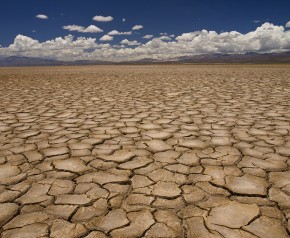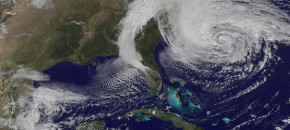Cities
Why water must be at the heart of China & India’s future plans
Soaring populations, ambitious infrastructure projects and the effects of climate change will all combine to put pressure on the most precious resource of all – water
Biodiversity must be built into urban development to make future cities sustainable
Thomas Elmqvist from the University of Stockholm warns that as an area the size of South Africa is expected to be lost to urbanisation, understanding the benefits of biodiversity will be vital.
40 million people at high risk from climate change in China
The 5th annual risk atlas from analysts Maplecroft finds five of China’s major cities at ‘high risk’ and warns multi-national companies operating in most Asian cities could face spiralling environmental costs.
Poverty and prosperity are the two greatest polluters, says Indian NGO
Manoj Kumar, CEO of the Naandi Foundation in India tells RTCC that conservation efforts must help lift people out of poverty to be successful.
The new group taking the green world by storm – meet the Arab Youth Climate Movement
Youth Profile #19: As part of RTCC’s youth profile series we spoke to the AYCM about why Arab countries must take the lead on climate change as Qatar host this year’s UN conference.
Survey shows 77% of Americans think climate change is a priority
New poll shows turning tide in US attitudes to climate change and clean energy with overwhelming majority saying it should be on Congress’ to do list.
Why pacific island migration must be considered at the COP18 climate talks
COP18 focus: As effects of climate change are increasingly felt across world, can world’s most vulnerable wait for a comprehensive mitigation deal?
Climate action in the US: 5 Reasons to be cheerful
Forget the stalemate at the UN climate change talks, back home the US is making more climate change progress than its partisan politics would have you think.
Planet 6°C: Will climate change turn Planet Earth into Mars?
More and more scientists warn that the world could see global average temperatures rise 6°C by 2100. What would this mean for the planet?
The young African scientists linking modern research with indigenous wisdom
Youth Profile #18: Thabit Jacob tells RTCC how young scientists across Africa are using research to highlight the role of indigenous knowledge in tackling climate change.
Sri Lanka’s electric rickshaws spearhead latest UN climate campaign
UNFCCC’s latest Momentum for Change campaign highlights initiatives in Sri Lanka, China, Uganda, Peru & Kenya ahead of COP18 summit
Climate change conflict in Africa a concern says SA Minister
Unpredictable rainfall patterns force migrations in pursuit of resources, often leading to conflict, according to Rejoice Mabudafhasi, South Africa’s Deputy Minister for Water & Environmental Affairs.
Seychelles plan to give tourists green education
Islands’ Minister of Environment and Energy says tourists must start to appreciate the consequences of their actions
China’s farmers key to cutting greenhouse gas emissions
Cutting the use of nitrogen as a fertiliser by half in China could significantly decrease greenhouse gas emissions without affecting crop productivity, according to new research.
UN agencies target climate health impacts as extreme weather events triple in 50 years
World Health and Meteorological Organisations collaborate to improve early warnings for climate-related health threats as a result of extreme weather and climate variability.
The African youth group driving climate adaptation in rural communities
Youth Profile #17: Severin Apedjagbo from the Young Volunteers for the Environment (JVE) explains how one group meeting in a rural community in Togo has spread climate adaptation across Africa.
Hurricane Sandy: the climate change alert the USA was fearing
The Hurricane Sandy Frankenstorm may not help scientist’s link storm frequency and climate change but it could be a painful demonstration of what New York can expect if extreme weather becomes the norm
Mayor of Seoul aims to ‘cancel out’ a nuclear power plant with climate action
City-wide energy efficiency drive announced as South Korea continues to push the climate change agenda at home and abroad.
Inspiring climate change action through education in Africa
Youth Profile #16: Billy Batware from United for Education and Sustainable Futures talks about how important education is to eradicating violence, poverty and climate change in the developing world.
Amnesty and Greenpeace call on India to stop coal violations
CBD COP11: New report examines how to protect community forest rights in coal mining regions in India








